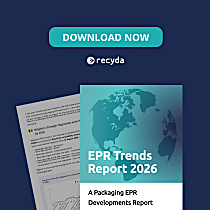Pasture Milk in a Carton Pack: a Rounded Concept for Great Flavour and Superior Quality

Superior product protection and an emphasis on natural purity are also key features of the packaging solutions that dairy businesses select to sell their quality products.

12/10/2010 --- The Austrian consortium (ARGE) Heumilch is in no doubt: pasture milk is the purest milk. Pasture milk cows are fed in the traditional way with seasonal feed – grasses and herbs straight from the pasture in summer, and sun-dried hay and mineral-rich coarse grain in winter. No silage feed is used, which is a plus for the quality of the milk – as well as tasting great, it has a high content of fatty acids, a valuable nutritional substance. So in the future, it will not be just Alp dwellers who have a taste for pasture milk, predicts ARGE Heumilch. Packaged in the aseptic carton pack, a wide range of export opportunities is also open for pasture milk.
World-wide, natural purity and authenticity are moving into the spotlight as key drivers in the milk and milk drinks product categories. In Austria, a large number of dedicated agricultural concerns and dairy enterprises have already returned to the traditional feed methods, and the production of pure pasture milk that follows from this. Austria is the EU's biggest producer of pasture milk. Around 8,000 pasture milk farmers and more than 60 dairies and cheese-makers are affiliated to ARGE Heumilch, and supply around 400 million kilograms of pasture milk each year, accounting for 15 per cent of Austria's total milk production. ARGE co-ordinator Andreas Geisler: “Europe-wide, pasture milk makes up barely 3 per cent of total milk production. However, the response at INTERMOPRO, the international trade fair for dairy products and dairy technology, which took place in Düsseldorf in September, has shown that outside Austria too, pasture milk is starting to attract a greater share of attention. This is due on the one hand to the especially good quality of pasture milk, and on the other to the awareness that traditional grass-farming is very good for the environment”.
Grass pastures support a rich and colourful tapestry of species. In summer, the diet of the pasture milk cows includes an average of 30 to 50 different types of grasses and herbs. The meadows where pasture milk cows graze promote biodiversity, particularly when it comes to bees and insects. And as permanent grassland, grass pastures have a significant filtration effect, thus contributing to the quality of the ground water. To obtain feed for the winter, the meadows are mown; the grass is dried, stored in barns, and fed to the cows as hay during the cold season. The farmers who produce pasture milk guarantee that silage, including silage fodder made from grass or corn, is not used to feed their cows. Geisler: “Compared to traditional milk, pasture milk has a higher content of polyunsaturated fatty acids such as Omega 3, which have a beneficial effect on cardiovascular health. The human organism is unable to produce these fatty acids itself, and has to absorb them from its food. Moreover, compared with milk from animals fed on silage, pasture milk contains very few clostridia. In cheese production, for instance, this strain of butyric acid bacteria can cause cracks in the cheese, and in the worst case it can make the product unusable. Aside from the product safety issues, pasture milk also has clear advantages in terms of its taste: the more natural, fresh and varied the feed, the cleaner, more full-bodied and aromatic the flavour”.
Emphatically natural
Superior product protection and an emphasis on natural purity are also key features of the packaging solutions that dairy businesses select to sell their quality products. Geisler: “The packaging concept has to fit the product and its characteristics. The materials used also play a key role in retaining the flavour of the milk. Packaging made out of cardboard is an environmentally friendly solution that is manufactured largely from the natural, renewable raw material wood”. Aseptically packaged in carton packs, products can be stored for a long period even without refrigeration. “These are key requirements for positioning premium pasture milk products internationally as well”, says Geisler, looking optimistically towards the future.
Katharina Fersterer, Marketing Officer for Austria at SIG Combibloc, one of the world's leading manufacturers of carton packs and filling machines for beverages and foods: “All over the world we're seeing that, particularly when it comes to nutrition and a healthy diet, consumers are attaching much greater value to natural purity and authenticity in the foods they buy. In view of this, we believe the pasture milk concept has the potential to be successful outside Austria as well”.











